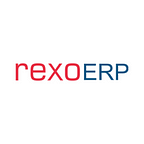In the unique scene of present-day business, choosing the right Enterprise Resource Planning (ERP) system is a crucial choice that can fundamentally affect an association’s proficiency, development, and primary concern. With a huge number of ERP solutions from various ERP company accessible, each taking special care of different industry needs, it’s pivotal to leave the determination cycle equipped with a reasonable comprehension of the main thing. In this article, we delve into the five most significant elements to consider while picking an ERP system.
Functionality and Customization
The most important thought is the manner in which the ERP system lines up with your organisation’s particular functional necessities. A complete evaluation of the product’s functionalities is vital. Does it cover your centre’s cycles like finance, procurement, inventory management, production, and customer relationship management? Moreover, survey the system’s adaptability for customization. Your business is interesting, and the ERP ought to be versatile for your work processes, permitting you to arrange cycles and modules depending on the situation.
Scalability and Growth Support
Choosing an ERP system is an important decision for your business. As your association develops, the ERP ought to flawlessly scale to accommodate expanded data, clients, and tasks. Guarantee that the chosen system offers versatility without compromising execution. The capacity to incorporate extra modules or functionalities as your business expands is an important element. This versatility guarantees that your ERP stays pertinent and viable even as your business develops.
Ease of Use and User Experience
An ERP system is essentially as strong as clients’ capacity to really explore and use it. An easy-to-understand interface and instinctive plan can essentially influence reception rates and decrease employees expectations to learn and adapt. Focus on ERP solutions that offer a smoothed-out client experience with clear navigation, thorough dashboards, and job-based admission. Preparing time and expenses can be limited when employees can rapidly get a handle on the system’s functionalities, prompting expanded efficiency.
Integration Capabilities
Present-day organisations depend on a variety of software applications to oversee different parts of their tasks. Your chosen ERP ought to flawlessly incorporate these current instruments to stay away from data warehouses and smooth out processes. Combination with Customer Relationship Management (CRM), web-based business stages, store network management instruments, and other crucial applications can upgrade the ERP’s general utility. A very well-coordinated ecosystem wipes out manual data passage, diminishes blunders, and gives a comprehensive perspective on business tasks.
Vendor Support and Security
The relationship with your ERP vendor goes beyond the underlying execution. Hearty customer support, standard updates, and progressing maintenance are fundamental to guaranteeing your ERP system stays proficient and forward-thinking. Search for merchants with a history of fantastic customer administration and a promise to help clients boost the product’s true capacity. Also, focus on security elements, for example, data encryption, client access controls, and consistency with industry guidelines as ERP systems handle delicate and classified business data.
Conclusion
Selecting an ERP system is a pivotal strategic decision that warrants careful consideration. By focusing on the five critical factors outlined above — functionality and customization, scalability, user experience, integration capabilities, and vendor support — businesses can navigate the complex landscape of ERP solutions with confidence. An ERP that aligns seamlessly with your operational needs, grows with your business, is intuitive for users, integrates effortlessly, and is supported by a reliable vendor can catalyze operational efficiency, drive growth, and position your organization for success in the ever-evolving business landscape.
